In 2009, a strange Facebook account appeared out of nowhere and friended people en-masse. The name on the account was Junko Junsui, and she had a message for anyone willing to listen.
Thus began a strange mystery that would continue for years to come, as countless people across the internet became enamoured of Junsui, her story, and the shadowy organisations she claimed were hiding in plain sight. It was never real, of course. But that doesn’t make the story any less remarkable, or make it feel less real.
First: Junko Junsui, and her Facebook account.
Some people actually accepted the seemingly random request, and, upon investigating further, found that Junko was not just a friendly Russian beauty, as her profile initially made it seem. Rather, she appeared to be a part of a weird alternate reality game involving a terrorist group called ‘The Junsui,’ Russia, and private military companies — all of which were warring with one another across the internet.
Judging from early threads following the game, many found untangling Junko Junsui’s web to be a thrill, which makes sense: the confusing premise seemed as if it was lifted straight out of a Metal Gear Solid plot. Shadowy organisations, corrupt governments, overzealous groups defined by genetic modification, a huge conspiracy: Junko Junsui delivered on all fronts. But more than that, people found the entire thing disturbing, too. One of the most notable early clues in the ARG led players to discover video clips of a woman trapped inside of a room:
According to players who discovered it, there were over twenty hours of that kind of footage floating around on the internet. Meanwhile, Junko Junsui’s Facebook page — which is now deleted — seemed adamant in its defence that it was all real. She claimed that someone from the Junsui sisterhood — the person in the footage — had been kidnapped, and they really, really wanted to get her back. None of this might seem unusual now in 2015 — hell, just recently, Square Enix teased the new Deus Ex by using a Twitch stream that purported to show footage of an imprisoned man. Everyone knows the Deus Ex footage is fake. But Junko Junsui happened back in 2009. Not everyone was sure that what they were toying with was just a game.
For one thing, figures from within the game would sometimes warn of upcoming attacks that seemed to come true in real life — like this one in August 2009, where various social media websites, like Facebook and Twitter, suffered outages thanks to denial of service attacks that seemed to originate in Russia — where many of the Junko Junsui organisations were supposedly located. But, more importantly, Junko Junsui didn’t seem to work like most ARG games. If there was a “puppet master” behind it all, that person seemed particularly antagonistic toward people who participated. Junko Junsui is said to have became irate in her Facebook posts whenever people posted her communications on forums, sometimes allegedly outing anonymous participants who believed they were just playing a game. I would link to these supposed Facebook posts, but the profile is gone now — the only thing left is people on other forums commenting on Junko’s behaviour:


“I have NEVER seen this type of behaviour in an ARG before. EVER,” says one of the commenters in the screenshot above. “Not to sound paranoid, but wouldn’t this be insane if we were dealing with real groups and real people?”
This paranoia was, in a way, my introduction to the whole mess. On Monday, I found out about an iPad game released back in 2014 called Alfa-Arkiv. Here’s the peculiar app store description for it:
GAMES” ARE THE WEAPONS OF THE FUTURE.
Since this is a “liberated” piece of psychotronic software so we are still fixing some glitches. (^_^)
Las SGG can get you through the FIRST TWO SECURITY CLEARANCE LEVELS with no problem.
To go further you will need to make a donation to Junsui Movement of $US1.99 yankee dollars.
MAKE NO MISTAKE – THIS IS JUST A GAME
“Third Roman Intelligence Directorate” is just a shell, another FICTIONAL SUBSIDIARY created by LIARS who use ALIASES.
| – | – | – | – | – | – | – | – | – | – | – | – | – | – | – | – | – | – |
In this GAME there they have created there are THREE MAIN RULES:
1. YOU ARE A FREE AND INDEPENDENT INDIVIDUAL.
2. YOU MUST PURSUE WHATEVER MAKES YOU HAPPY.
3. SHOULD ANYTHING PREVENT (1) or (2), YOU MUST DESTROY IT.
| – | – | – | – | – | – | – | – | – | – | – | – | – | – | – | – | – | – |
It was made with the help of countless REAL PROFESSIONALS including:
• INTERNATIONAL FINANCIERS
• IT PATENT LAWYERS
• AGENT PROVOCATEURS
• PREDICTIVE INTELLIGENCE SPECIALISTS
• PR TECHNOLOGISTS (CONSULTANTS)
• SPONSORED POLITICIANS
• VIP HOSPITALITY HOSTESSES
• WELL-CONNECTED ARTISTS
• CELEBRITY AUTHORS
• NARCISSIST WHISTLEBLOWERS
| – | – | – | – | – | – | – | – | – | – | – | – | – | – | – | – | – | – |
Inside the ARKIV:
WHO was JUNKO JUNSUI and WHAT really happened to THE SISTERHOOD of “BLACK WIDOWS”?
WHAT is ROSTEC and WHY has ROSKOMNADZOR not yet built a GREAT FIREWALL of RUSSIA?
WHY does SOCIAL MEDIA not reach its TRUE POTENTIAL until your CITY SQUARE is on FIRE?
HOW can TECH STARTUPS that did not exist a few years ago now be VALUED IN THE BILLIONS?
WHEN the NEW REALITY arrives, will your HAPLOGROUP or GENDER be needed?
Here is a trailer linked in the description:
It was a continuation of 2009’s unresolved Junko Junsui incident, listed on the store as created by the “Third Roman Intelligience Directorate.” Whatever that is. As you might already know, mysterious conspiracy games are totally my jam. But something seemed amiss here. Many players seemed genuinely upset by the game and its potential implications. Here’s one of Junko Junsui’s’s biggest participants, Ad_Arcana_Tutanda, warning people on an ARG forum ‘unFiction’ to stay away from the new iPad game in 2014. He claimed that the more he looked into the game’s and the more he looked up the background of the people involved with it, the more things seemed pretty damn bad to him. “Not silly haha bad,” this user wrote. “But serious bad, like [Junko Junsui’s] messaging was orchestrated with malign intent and definitely not coming from the US.”
Ad_Arcana_Tutanda noted that if Junko Junsui were indeed just an ARG, why couldn’t anyone figure out its endgame? The game had been around for years. Surely, by 2014, someone would have figured out what the point of it all was. Instead, the game simply seemed to continue and sprawl, without really shilling for any particular product, as many ARGs tend to do.
The biggest red flag for this user was that some of the figures inside of the game were actual private military companies. This person claimed that much of the information contained within the game about these organisations — like phone numbers — were actually real. In an effort to figure the game out, some players had inadvertently been in contact with real-world shadowy figures.
“Calling them is probably the least smart thing you could do,” Ad_Arcana_Tutanda warned. “At the very least, you risk wrapping a mile of bureaucratic red tape around yourself, as well as earning lifetime observation of your digital footprint.” Ad_Arcana_Tutanda seemed worried that the app was a way for the Russian government to conduct experiments on its users, as a part of some so-called “information war.”
“I am absolutely sure of this and so I take back any previous endorsement I ever gave of JJ,” Ad_Arcana_Tutanda wrote.
Ad_Arcana_Tutanda was not alone.
Here are some Reddit threads alerting people about Junko Junsui’s ‘true’ nature (expand to see in full):

(Reddit user TAPShooter, telling other that “Oksana Kareyeva,” a character within the game, was actually considered a terrorist in real life. “Not sure what anybody would want to get involved with this,” TAPShooter wrote.)
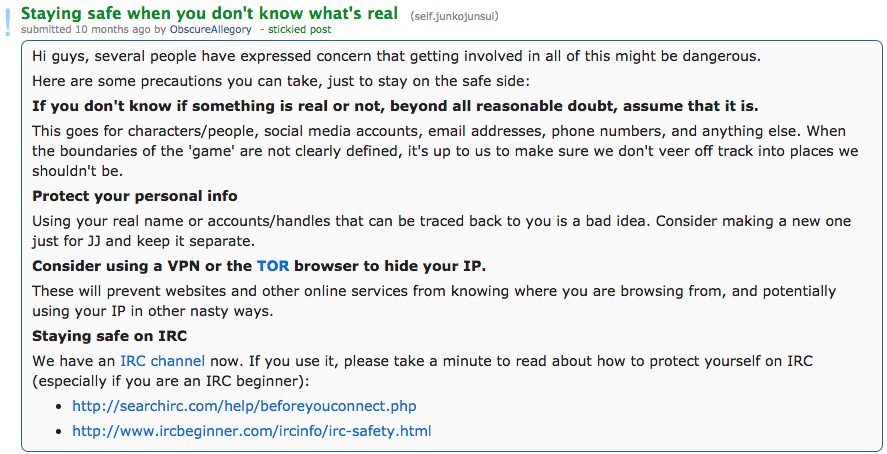
(Reddit user ObscureAllegory, telling people to exhibit caution when they didn’t know which parts of the game were actually true. “If you don’t know if something is real or not, beyond all reasonable doubt, assume that it is,” ObscureAllegory wrote. “Protect your personal info,” he advised.)

(An unknown Reddit user, warning others that people who tried to uncover the real identities of the people within the game got hit with threats — Junko Junsui allegedly told these people that the group would release player’s names, emails, and addresses.)
Proving that natural selection no longer has much effect on modern, city-dwelling humans, all of this worked toward making me MORE interested in the game, not less. I mean, sure: I felt a little bit unsettled by the idea that the game could be a front or an experiment used by a terrorist group. But, well, that’s interesting too!? So…I downloaded it. To my surprise, the game was free. I stared at its icon on my iPad for a few minutes…

…before finally working up the courage to play the damn thing:
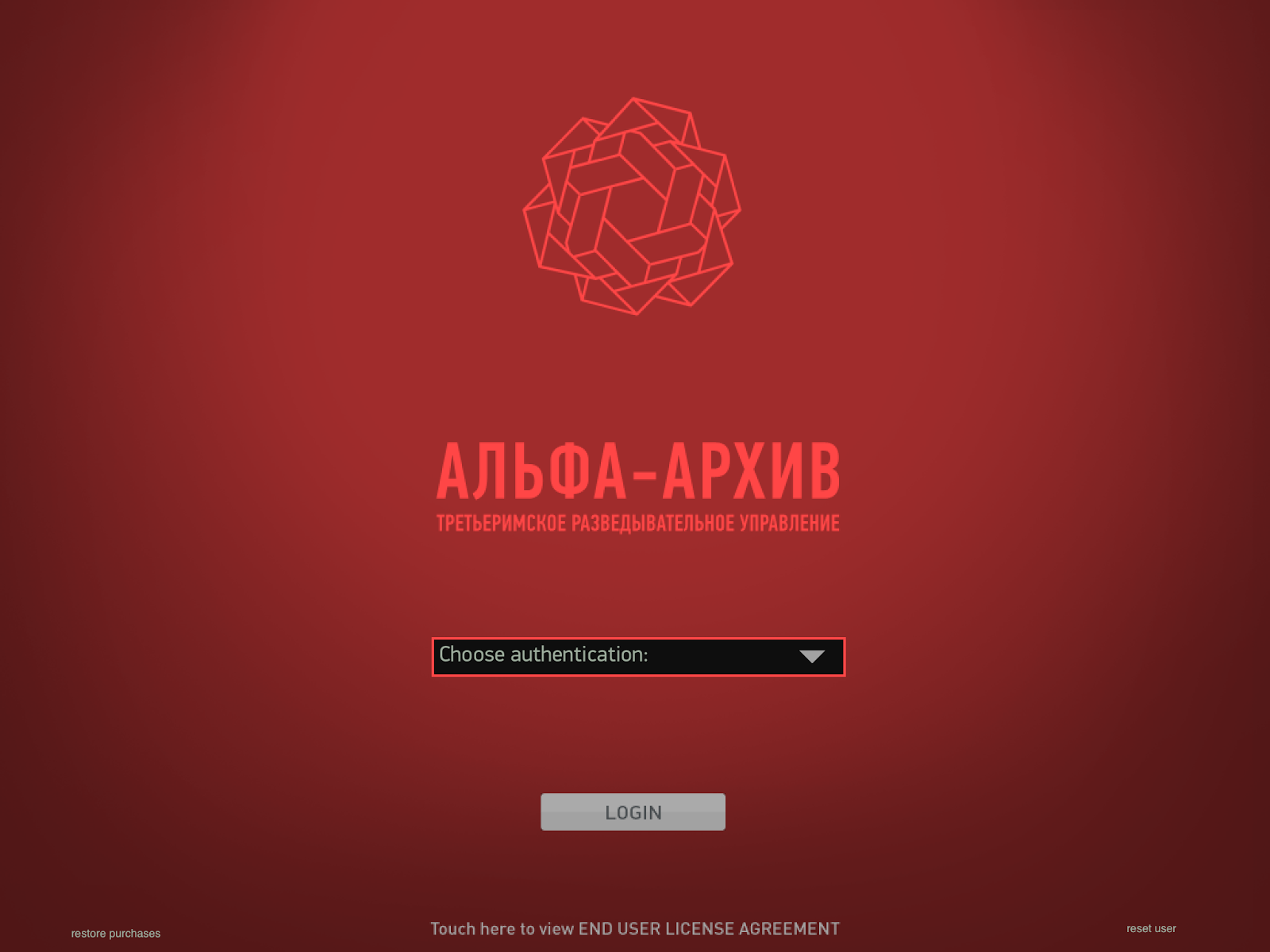
First thing the game asked me to do was to log into a Russian military program of some sort — but in order to do that, I had to accept the terms of service. Typically, when a game asks me that, I just pretend to look at the document and click “yes” when prompted. But the internet had planted the seeds of doubt in me, so in this case I actually pored over the terms of service in search of anything suspicious. In hindsight, I don’t think there’s anything in there that is out of the ordinary. But in the moment, even innocuous things seemed a bit suspect to me:

[The terms of service, which claimed that “the experience” might “disrupt your systems or make them behave erratically.”]
Still, I agreed. That’s when I was treated to a whole mess of coding gobbledigook that made it seem like I was jacking into the Matrix, not just starting a free iPad game:
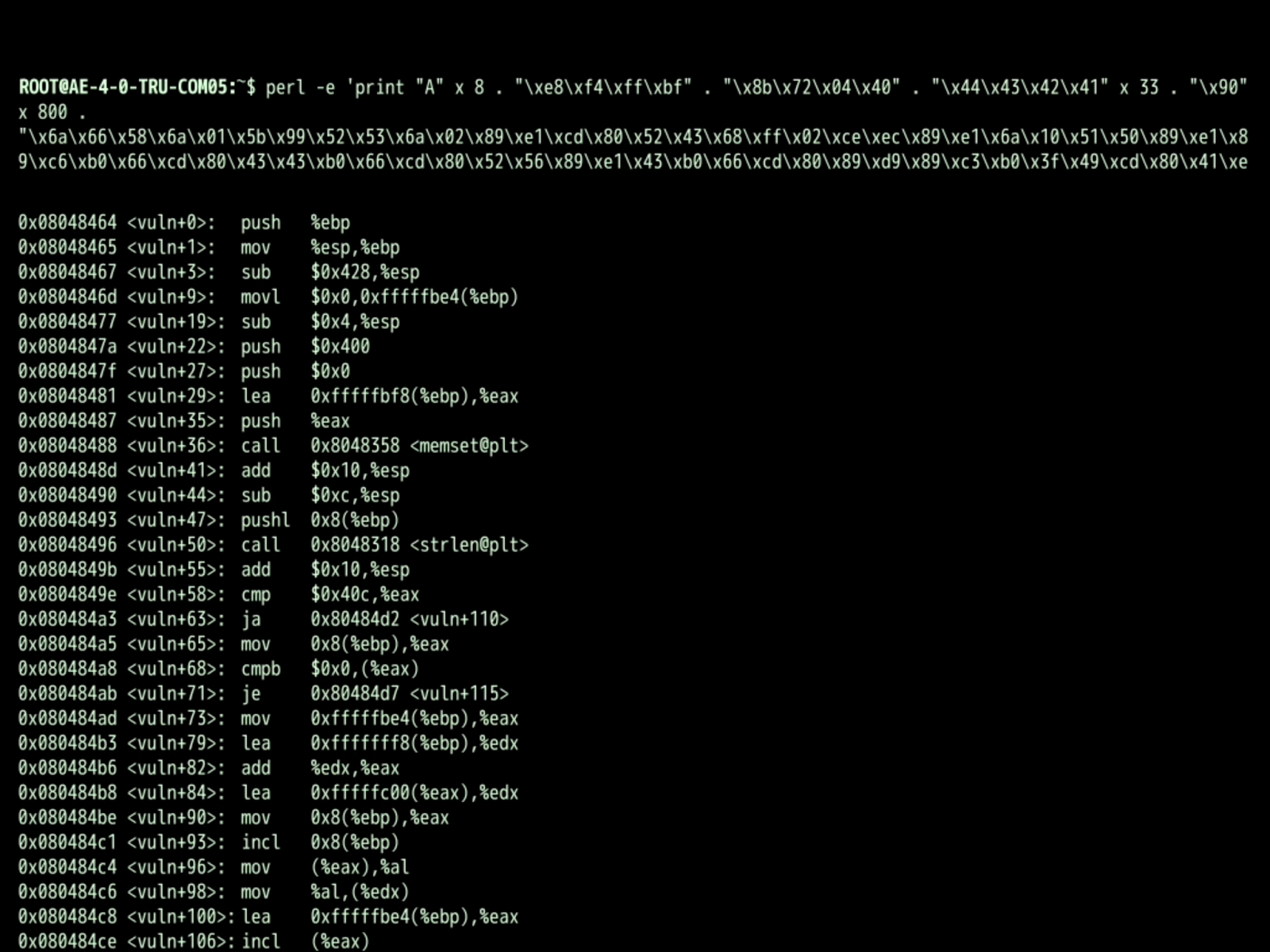
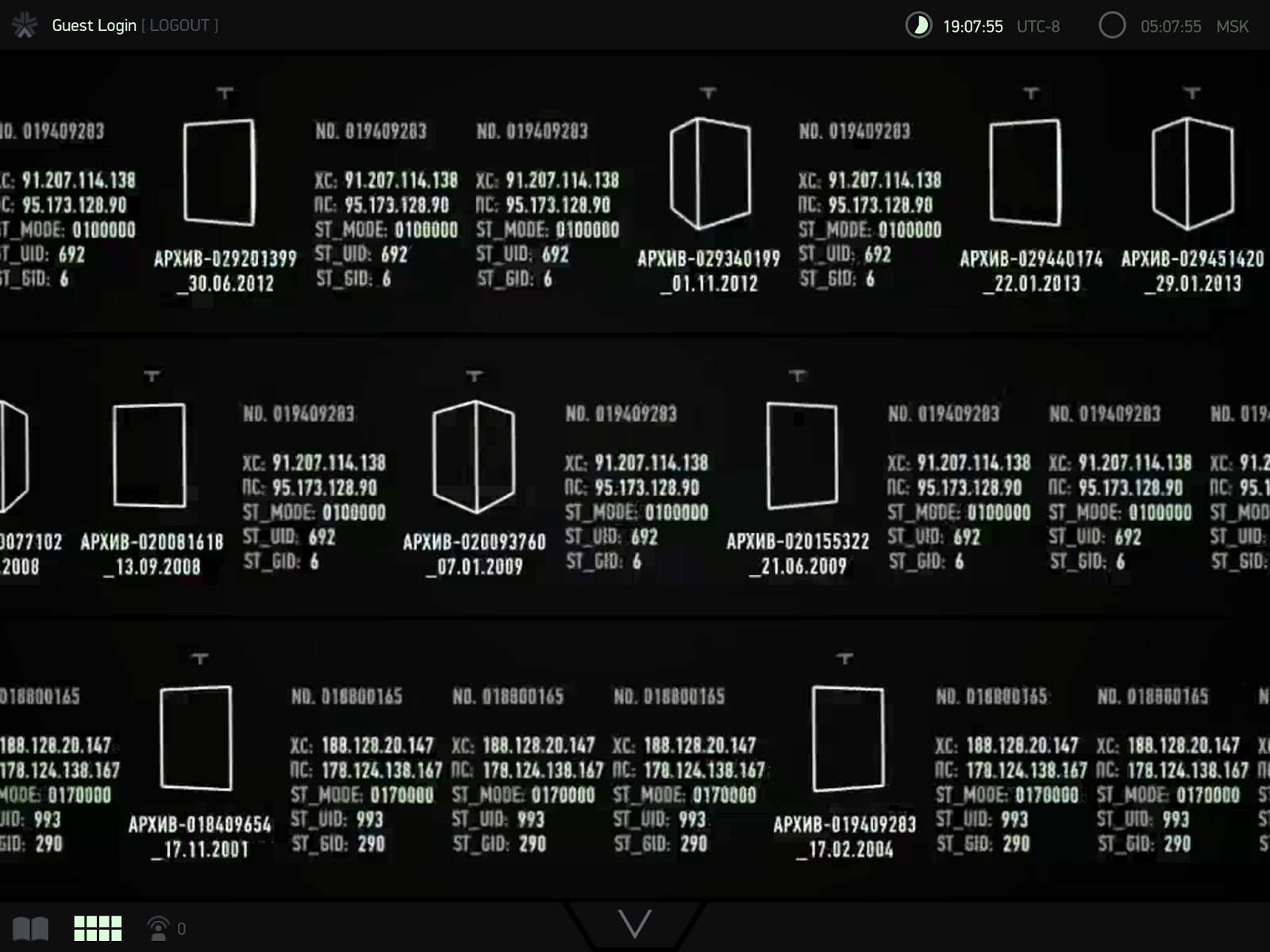
Eventually, these animations settled on the game’s main interface:
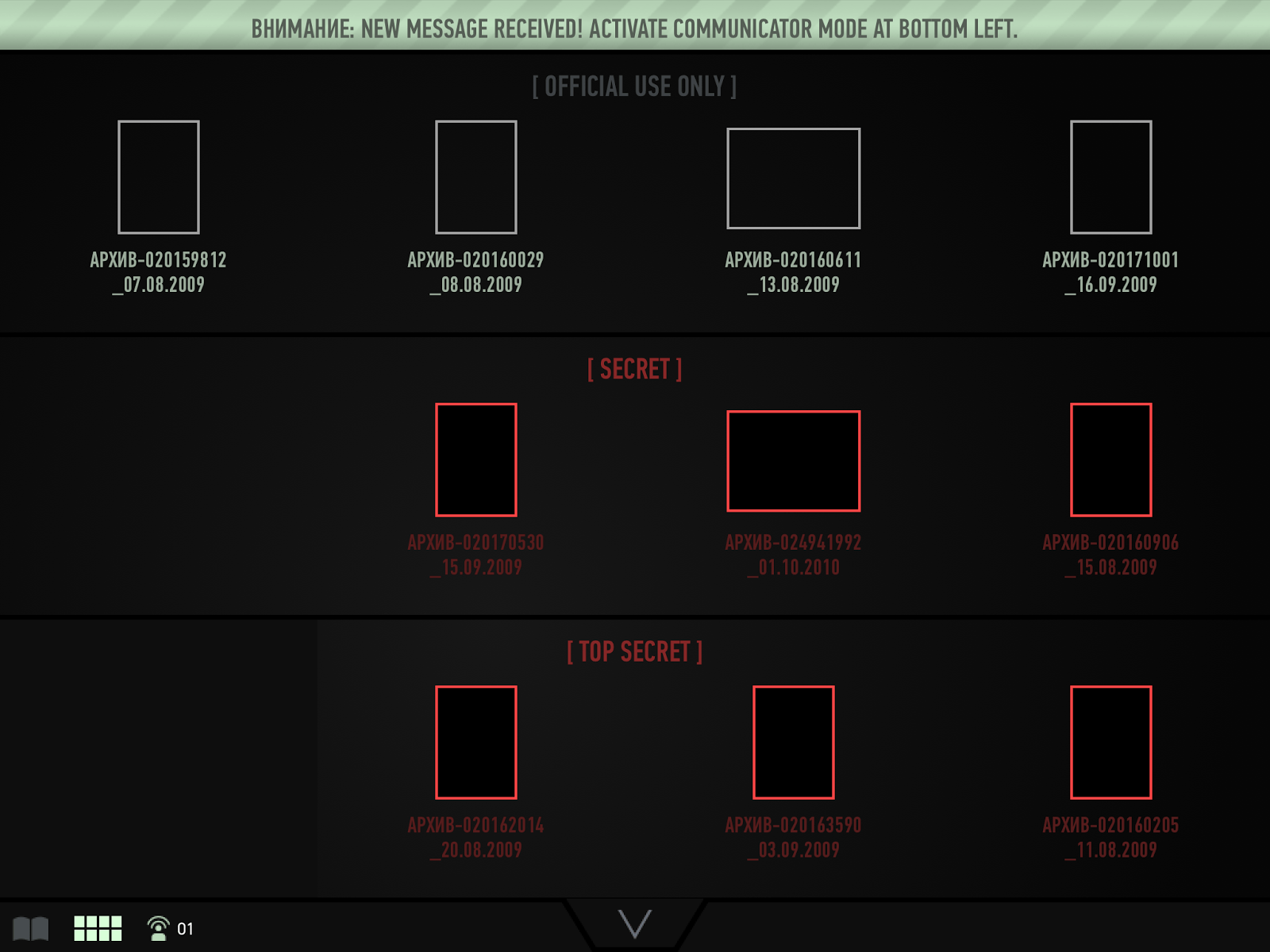
Each of those rectangles is a document, which you can peruse at your leisure simply by tapping on them. You’ll also get messages through the app about things like “unknown magical forces”:
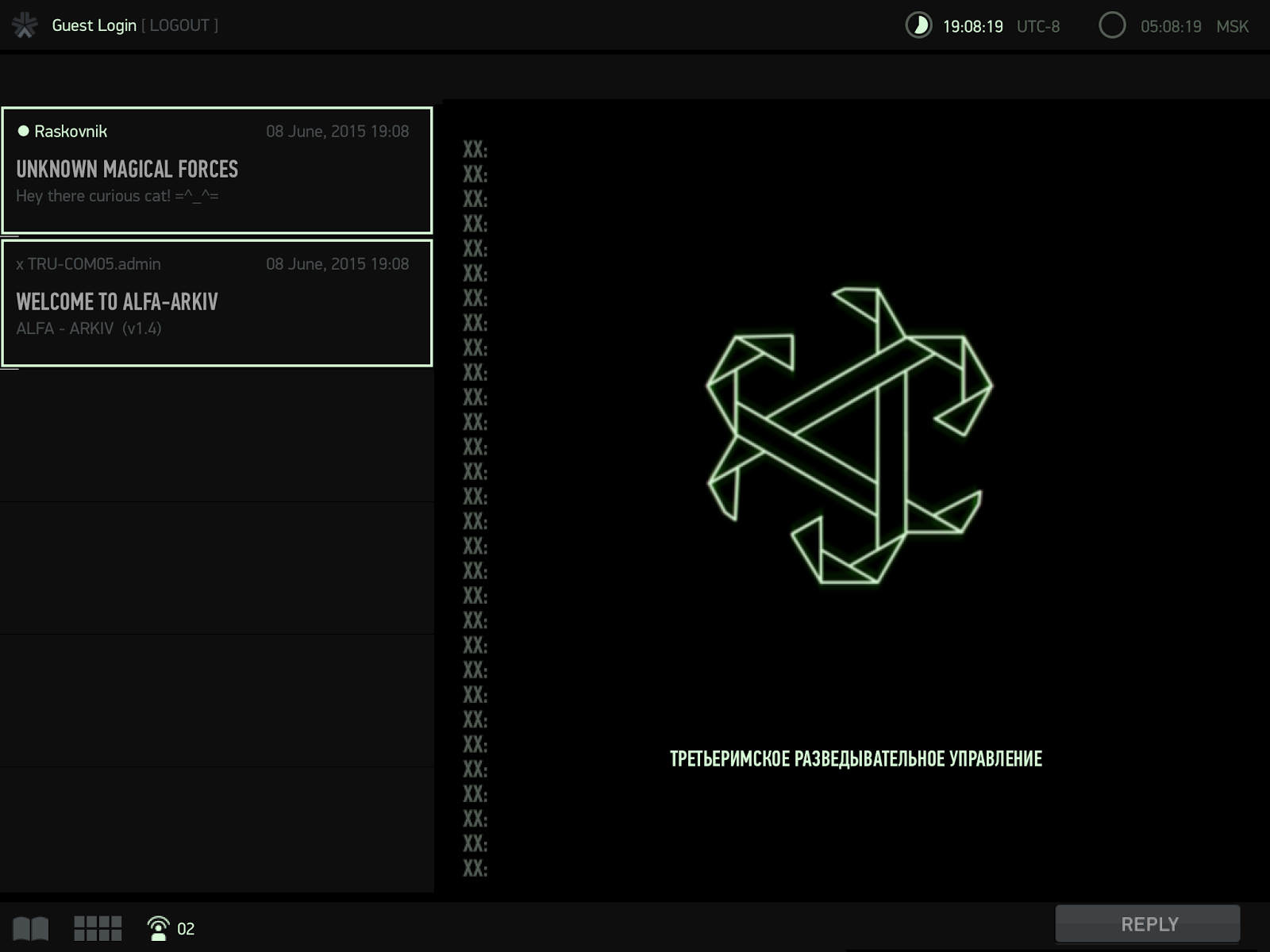
These initial messages give you a clue about what the app actually does:
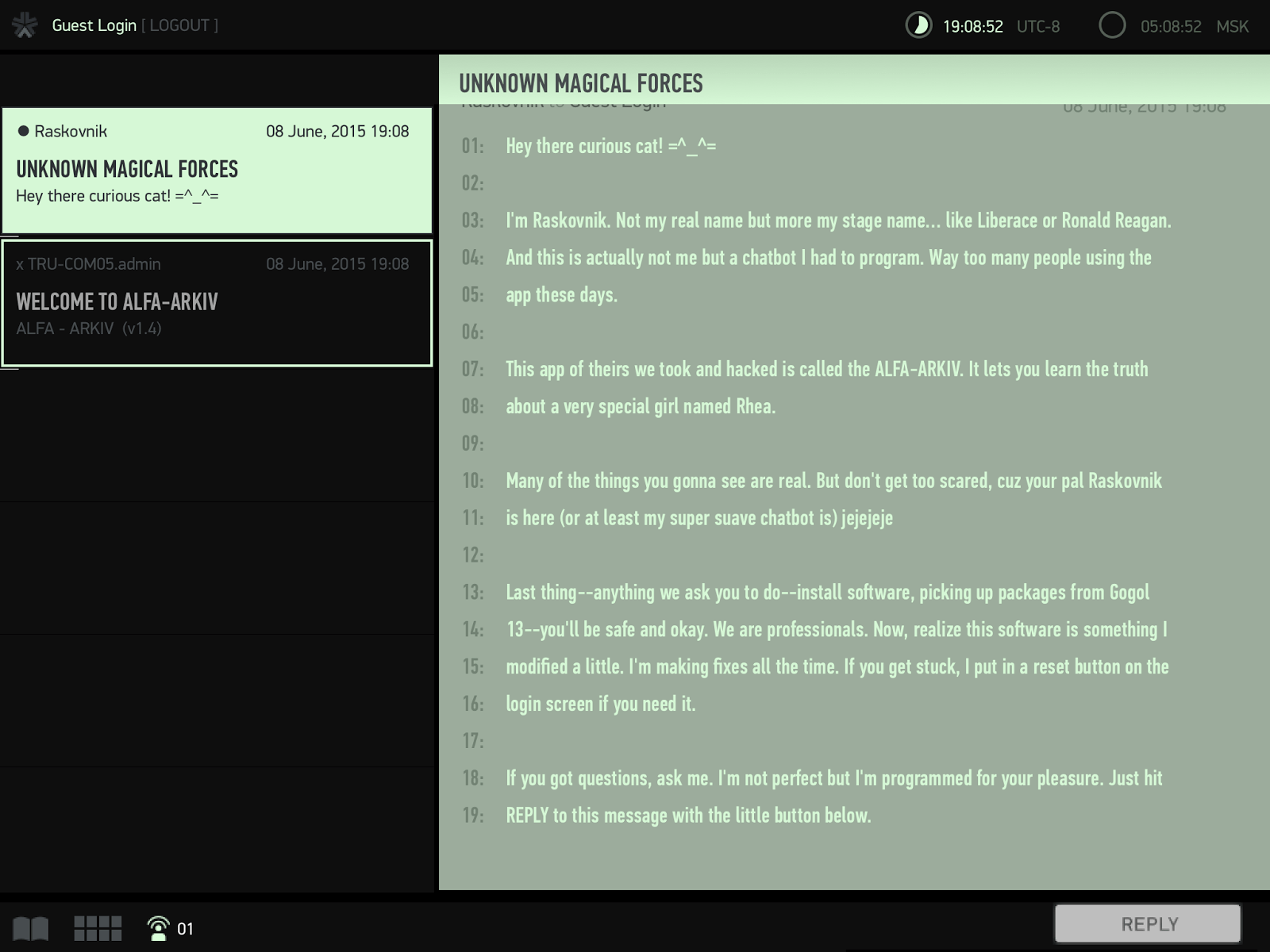
I was introduced to Raskovnik, a chatbot who told me that the app I was using was hacking into some sort of classified Russian database. “Many of the things you gonna see are real,” Raskovnik claimed. “But don’t get too scared, cuz your pal Raskovnik is here.” Raskovnik said that through this app, I’d be able to find out the truth about Rhea — who I assumed was the same woman in the videos found by people back in 2009. And finally, Raskovnik assured me that anything I did within the game was “safe.” Of course, the fact he had to assure me of that at all was not comforting.
Raskovnik then encouraged me to go back and read the documents in the app. Initially, the documents appeared blank, but when I tapped on the rectangles, I got a preview of what was contained within:

You only have access to certain documents at a time, however — tapping on anything beyond your current clearance level will give you a warning:

So, I started with the first available document. To my surprise, everything was in Russian:
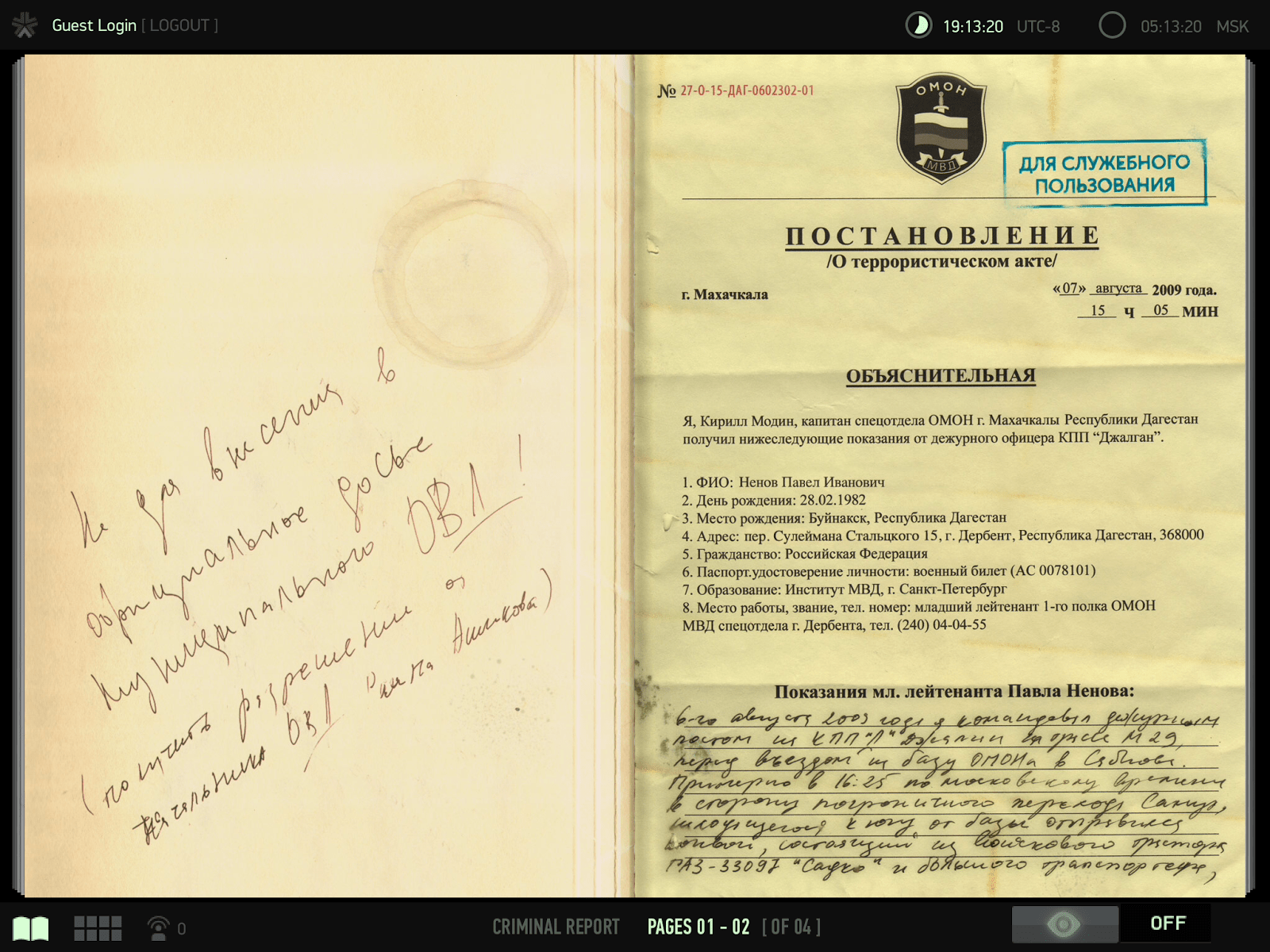
See that little eye icon on the bottom right? If you tap it, the game will automatically translate any document you’re looking at into English. You can read them in full, if you’d like, but I’ve provided a summary underneath:



The documents told the story of a lady named Rhea, who got captured after a botched suicide bombing attempt. This first set of documents also included an observation video, which looks similar to the stuff floating around back in 2009:
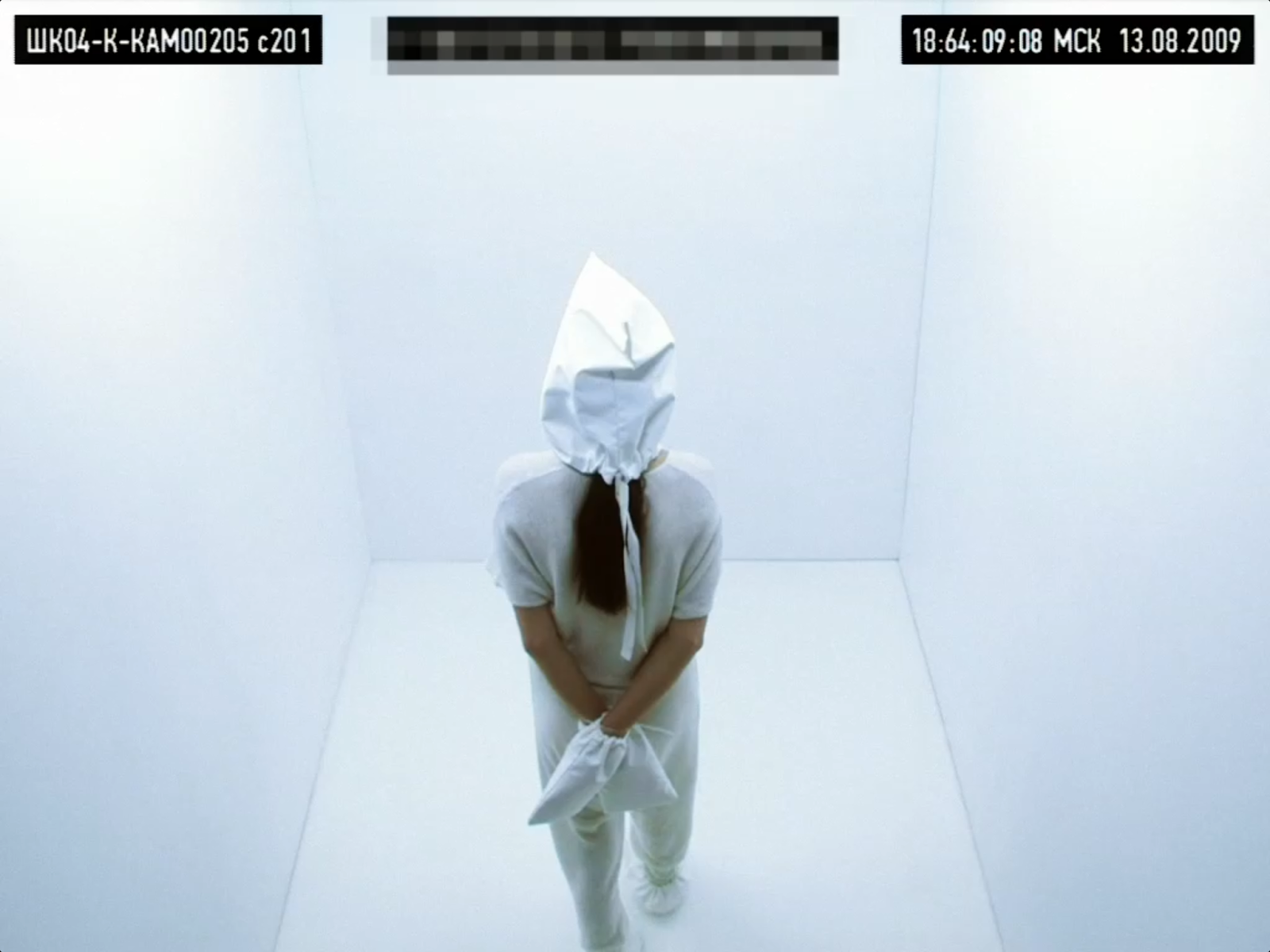
Further documents revealed that the bombing was Rhea’s attempt at revenge: she claimed that family members had been killed, and she thought that joining a “resistance” movement would give her a way to get back at the murderers. Halfway through this forced confession, the game seemed to glitch out momentarily…

…before letting me read through the documents once more. It was startling — I was in a groove reading the logs — but I put it out of my mind. Probably just a part of the experience, right? Once I finished reading through that entry, an ominous sound started playing. I heard a lady’s voice asking me if I wanted to see her. I had no idea who the lady was, though. Not just that: the game wanted to know if I would let her see me. The game then asked me if I wanted to let my iPad use its camera:

Freaked out, I said no. Why the fuck would I want to use the camera right now, I wondered? Would it connect me to someone else? Was that someone else a real person, not a player in a game? It was a very NOPE moment, not just because I walked into the game slightly paranoid, but because it was laundry day and I felt embarrassed at the idea of letting someone see me like that. So while I didn’t get to see what would happen if I had said yes, the game still displayed something unexpected:
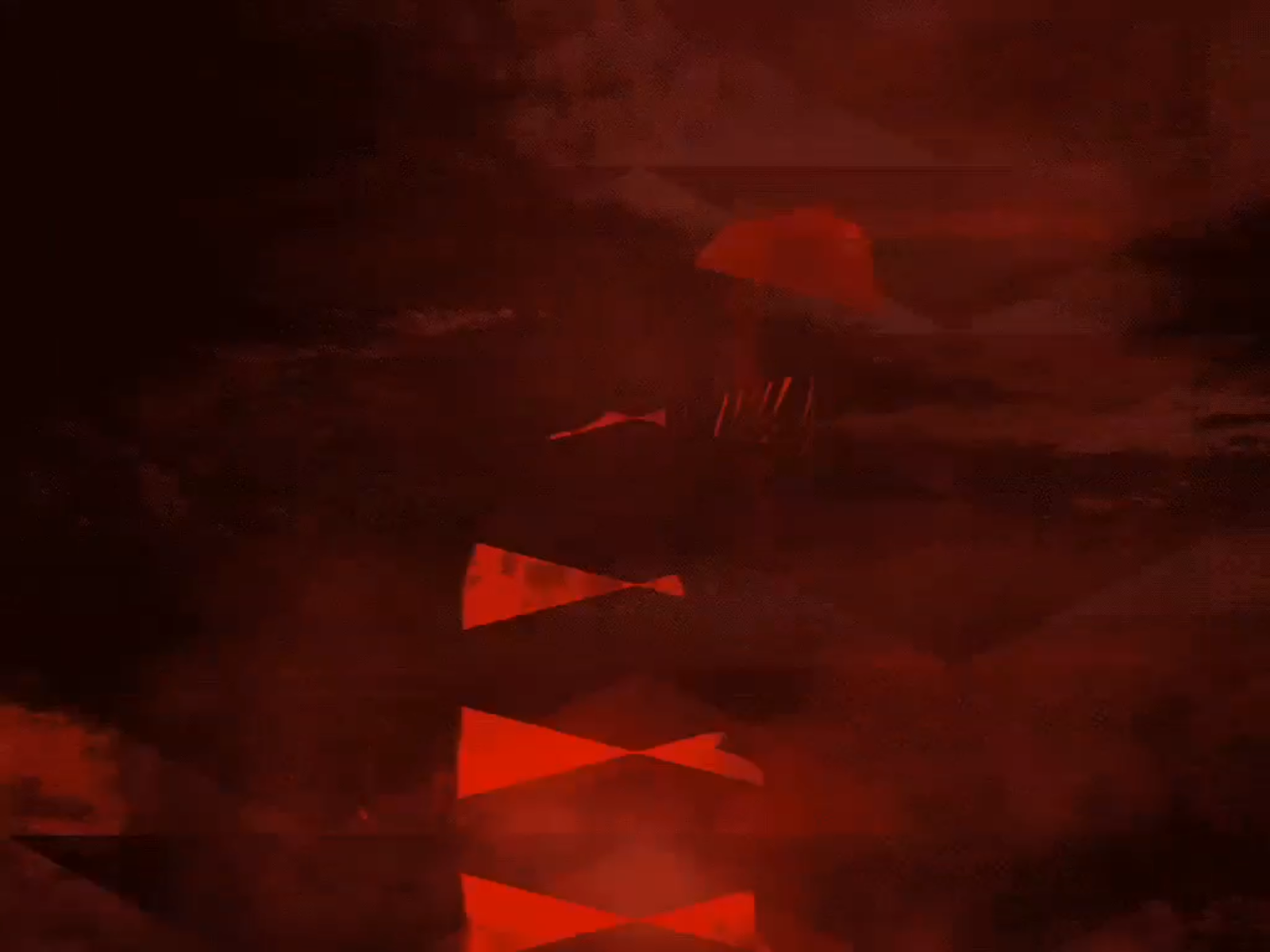
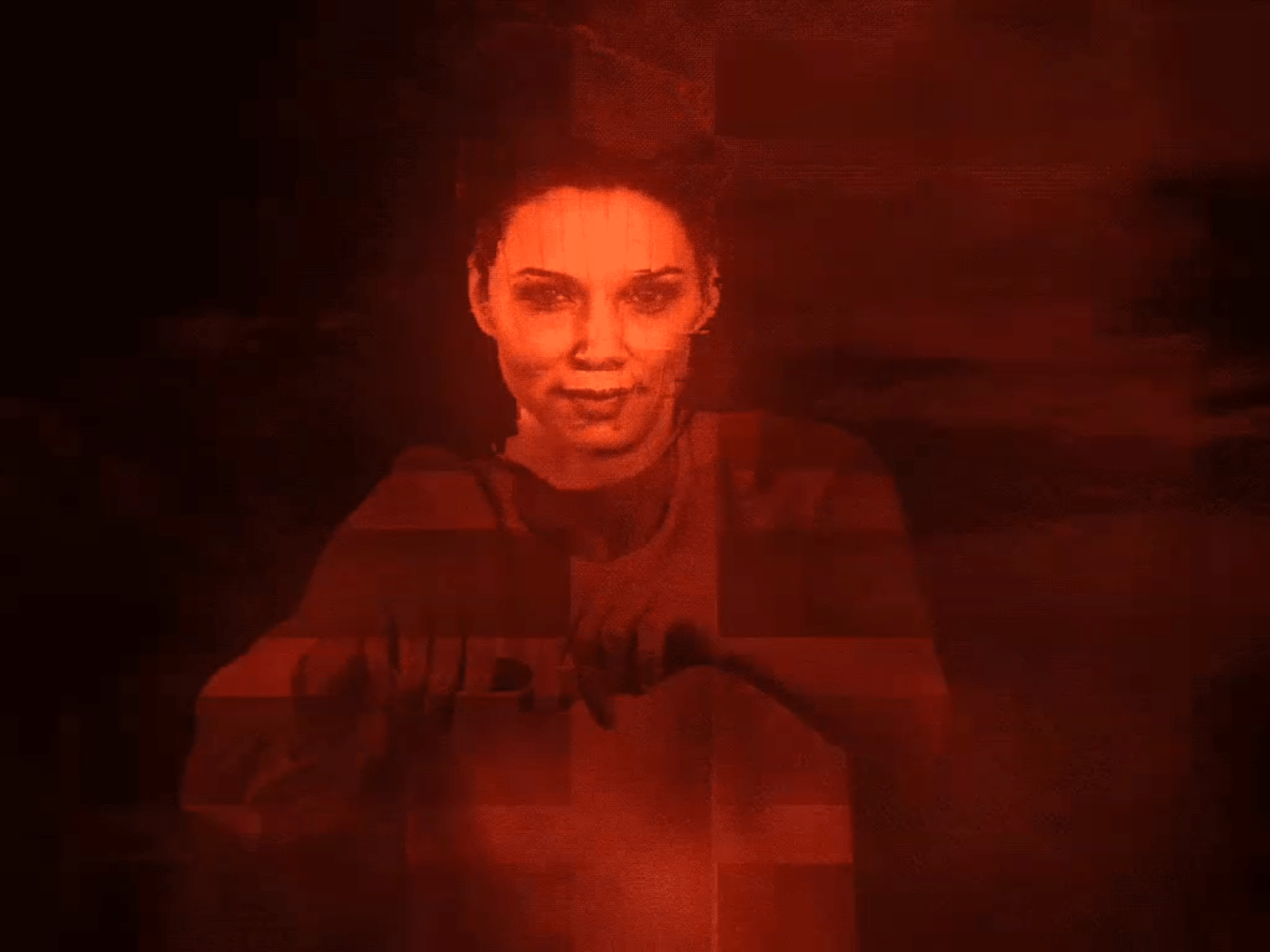

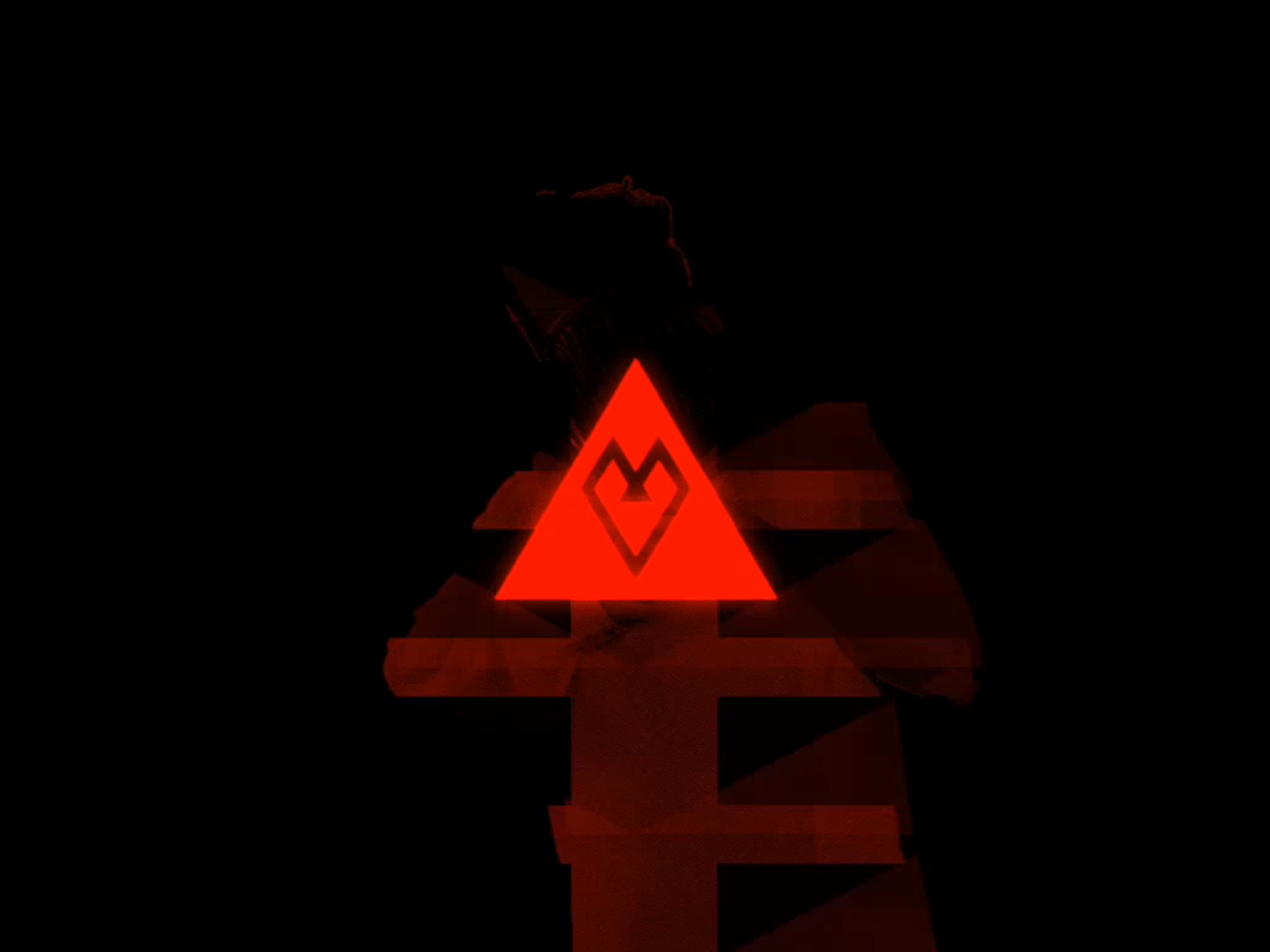
It’s difficult to recall what the lady was saying exactly. It seemed like vague nonsense about THE TRUTH, and I was still worried that I was meddling with something I didn’t actually understand. Once that video was finished, however, the game let me access the second tier of documents. Confession: I read each and every one of these with my finger over the iPad camera. I was worried that someone was watching me at that point, despite feeling it was probably impossible. That’s just how hooked the game had me. I didn’t know what was real, or what I could trust to be true.

These new documents let me take a closer look at Rhea’s past: supposedly, she grew up alongside sisters who were groomed to be agents that would extract information from certain suitors. Rhea told stories of seducing big oil men, doctors, and other various important men, all so that she could relay that knowledge to an organisation that was in the business of having information. Getting to that point, however, required a ton of strange training inside a facility that was completely removed from actual civilisation. The game suggested that Rhea and her sisters were not quite normal — many players maintain that the women were likely genetically modified somehow, which would perhaps explain details like their inability to have periods.
Much of what I was reading made it seem like this was indeed just a game. The interface seemed too clean, too deliberate, for it to be something else. And yet! When the game fed me videos like this one:
I doubted what I was looking at. Was it staged? Was the footage real? I didn’t know. What I could say with certainty is that after reaching a certain point in the game, its in-game chatbot asked me to chitchat. Here, a man in a mask once again asked me if I wanted to know the truth:
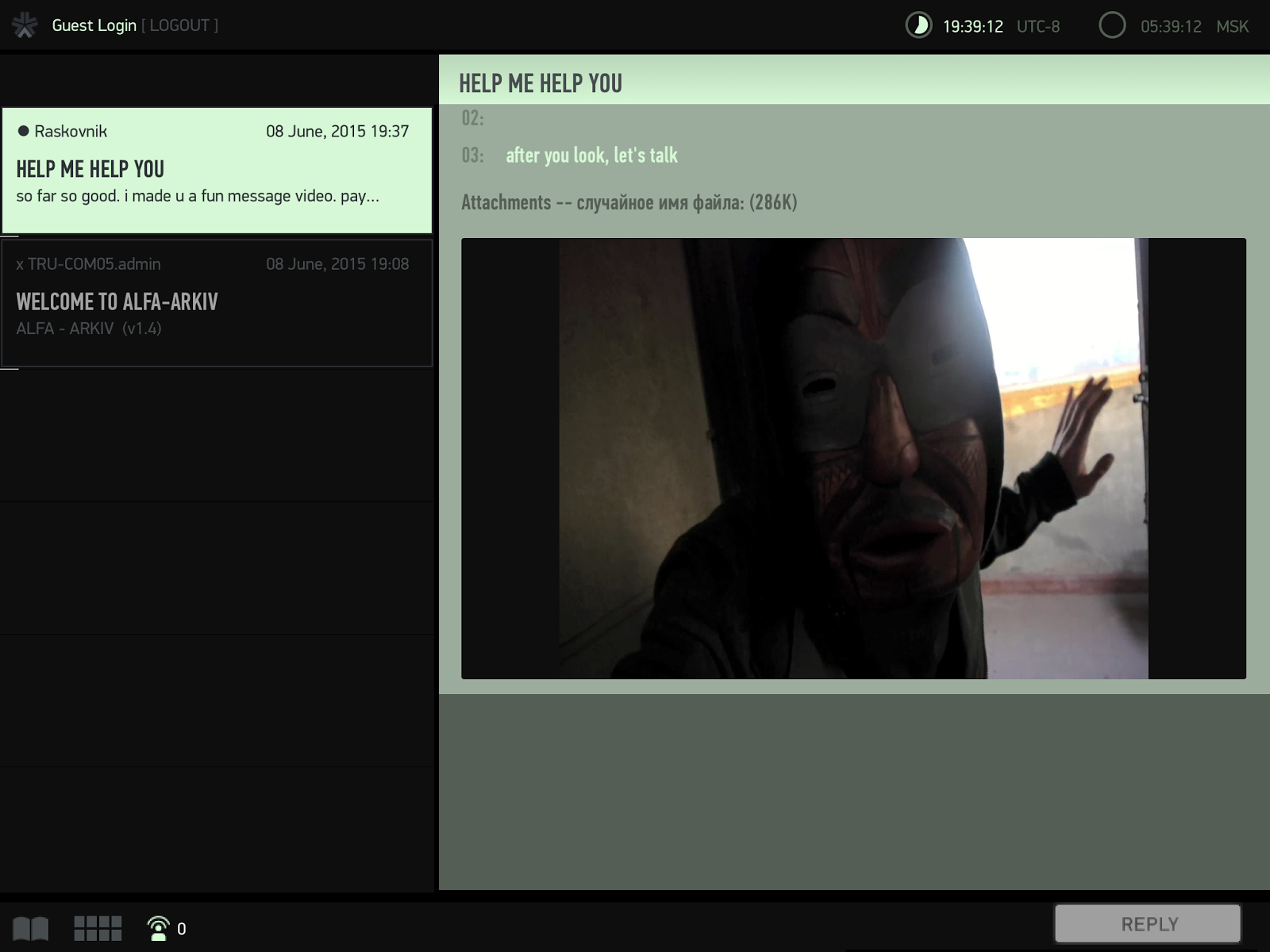
He informed that there was way more stuff I could look at, if I wanted to:

The catch? I would have to pay some money to see it.



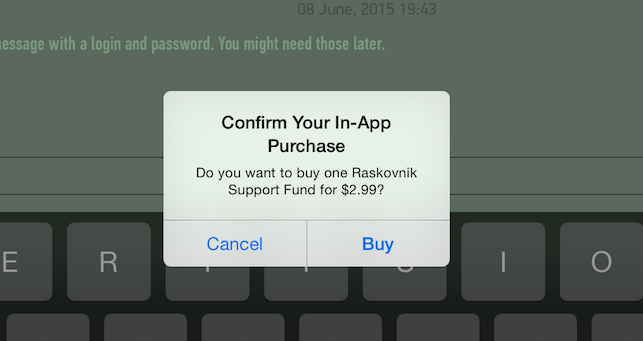
I had to ask the obvious, if not silly question here:

But the game would not show or tell me more unless I spent money. Was this just a game that was trying to sucker me out of my cash? Why was the money going to “Raskovnik Support Fund”? That doesn’t sound like a game developer. That sounds like an organisation, which so far doesn’t seem particularly legit. Would I go on some list somewhere if I donated money to this fund? Could a game like this even get past the App Store if it was ‘actually’ some front for a terrorist group? No way, right? Conflicted, I slept on it. I awoke with not with conviction, but with uncertain curiosity. I decided to take the plunge anyway. What’s the worst that could happen?
I made the purchase. The game gave me an actual login to the database time, as well as access to a number of juicy new files:
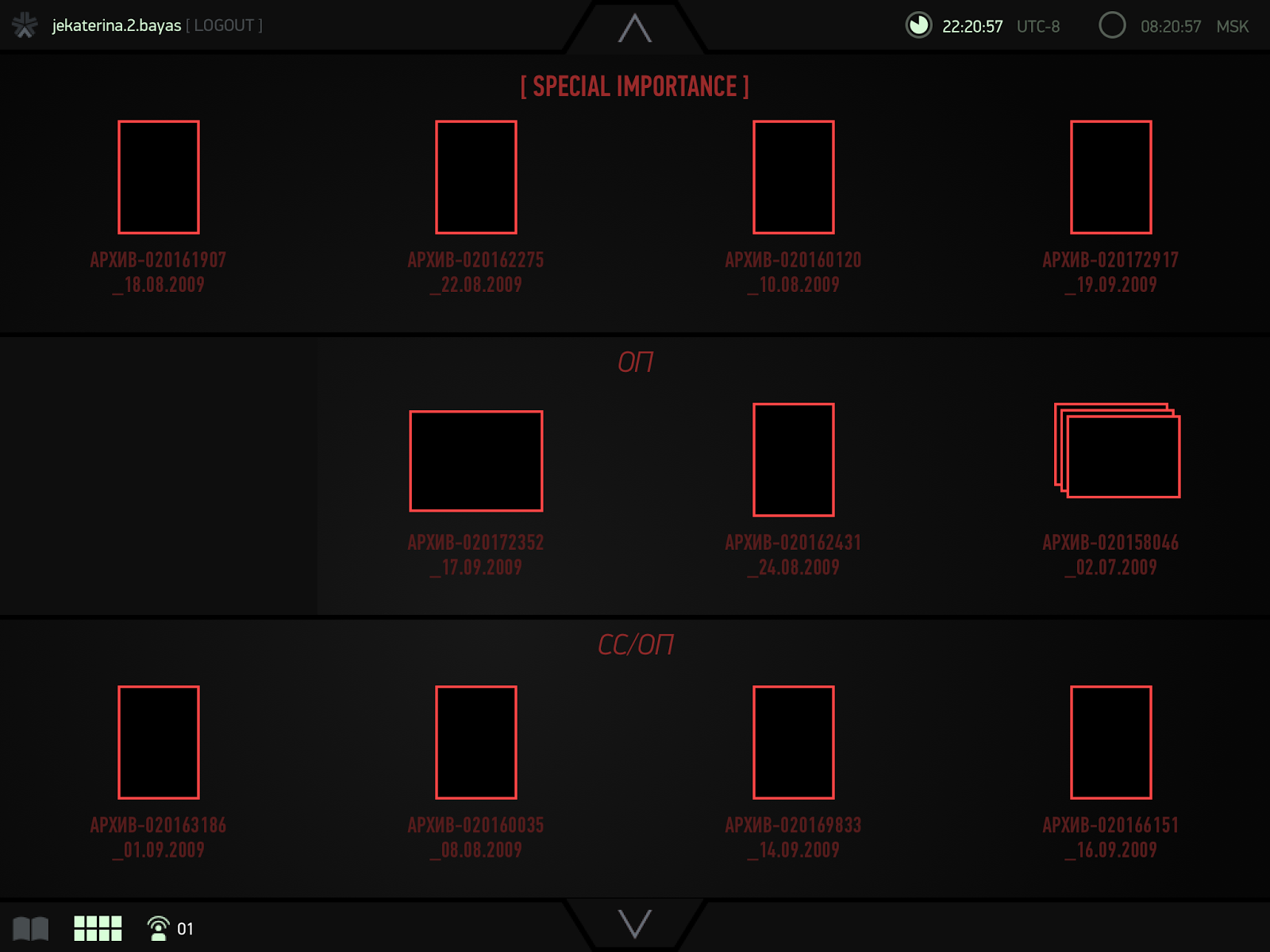
I spent hours reading through all of them. Some entries were dozens of pages long, and despite the fact I couldn’t always grok what they were about, I was fascinated. Every so often, I’d Google certain names and locations. Some were real, or at the very least had fake websites that made them look real. Yamantau, for example, was mentioned in passing — when I looked it up, it turned out to be a giant underground military complex whose purpose was unknown. According to Wikipedia, the US government has asked Russia multiple times the purpose of the facility to no avail.
Other supposed names, however, had Google coming up empty. The app also casually pointed to various websites, many of which were real and robust. The effect was that I never knew what was true and what was fake, making it easier to fall into a pit of paranoia. I wasn’t even sure how much of the game’s narrative was actually true, either. Some details didn’t quite line up with others, nor did some character’s mental state appear to be what I’d call stable. The only thing that seemed certain was that this game was really trying to fuck with me.
Eventually, the game interrupted my reading time with more stuff addressed to me, the player. The game wanted me to swear I was trustworthy — which is perhaps the most ironic thing a sketchy game like this could do.
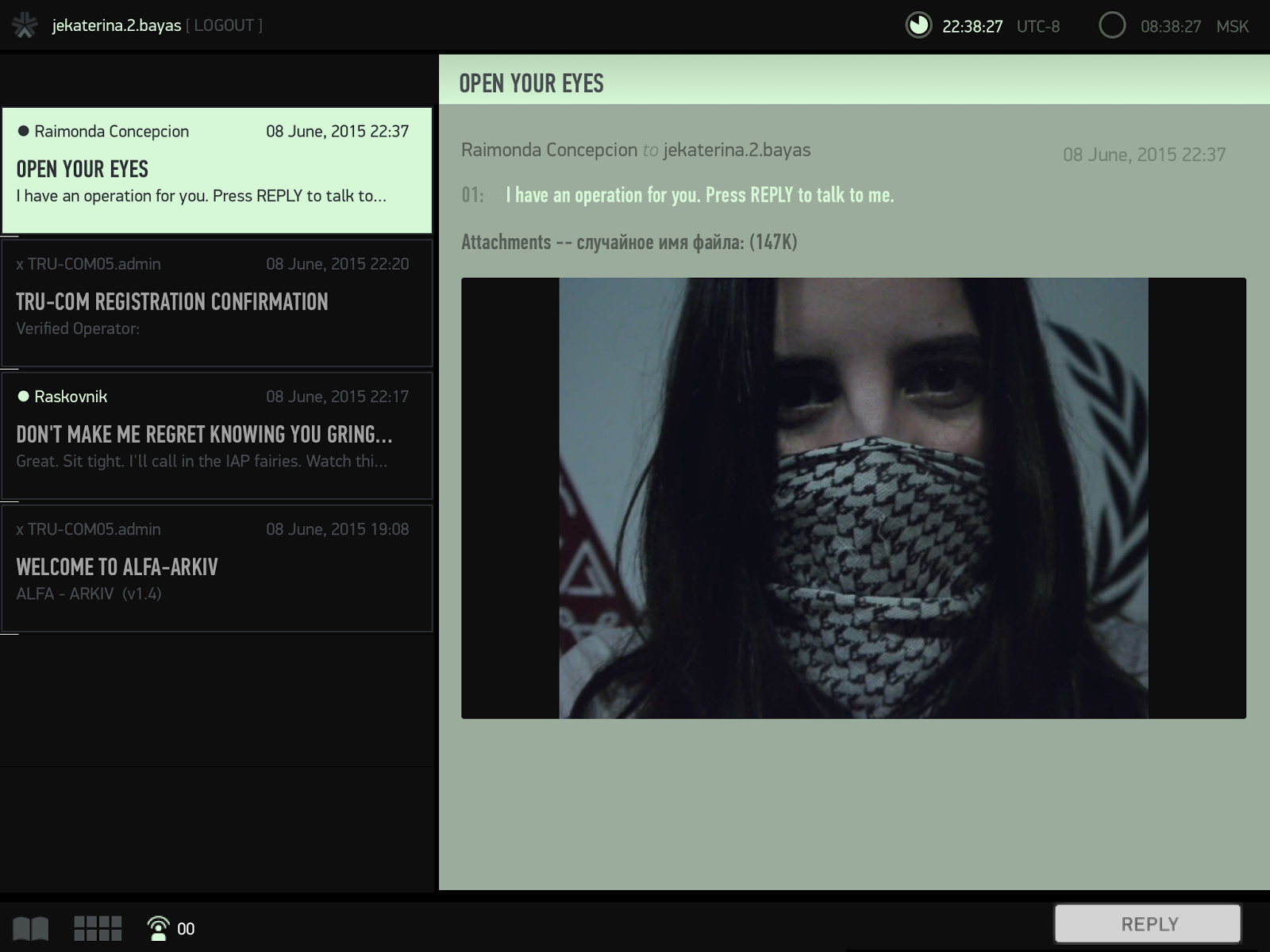

The lady then informed me that if I wanted to continue, I would have to install a Chrome extension onto my browser.

Called ‘ALFA-CIPHER,’ this extension was hosted by none other than Wikileaks. Buying stuff in-game, that’s one thing. That seems like typical app bullshit. Installing software seemingly endorsed by an organisation formed by Julian Assange, one of the most wanted men in the world? Fuck, man. I don’t know. Once again, my feeling that this was just a game wavered.
Here’s the Wikileaks page, explaining the deal with the extension.The page claimed that the extension was used by “various government and corporate intelligence services” as a means of tracking and collecting “behavioural data of opposition political and activist groups” — exactly what the unFiction user from before said.The page claimed that the extension was used to “build predictive modelling and ostensibly influence mass psychology,” and that the app provided an “effective means of gathering, communicating, and analysing data on a chosen subject in real time.”
Apparently, Edward Snowden himself (the plot thickens!) gave WikiLeaks a “technical specification” on the extension, and members of Anonymous were said to have distributed the extension as well. The page also said that the original Junko Junsui was actually spyware, used to challenge “supporters to a complete a series of online investigations and protests.” Perhaps the most incredible claim on this page was that the app could alter “the nature, appearance, and frequency of ideological content individuals encounter online.”
Yeeeeeah. That may be the most outlandish collection of sentences I’ve seen in a long time, but I still didn’tdownload jack shit. Sure, I was probably being overly cautious, but still. I don’t want a Chrome extension I don’t understand on my computer. To my surprise, when I returned to the game, it presented me with a new option: I could pay $US1 and ‘skip ahead.’ While I was not thrilled at the prospect, I ended up coughing up the dough anyway.
This allowed me to spend more hours going through more logs about the women…
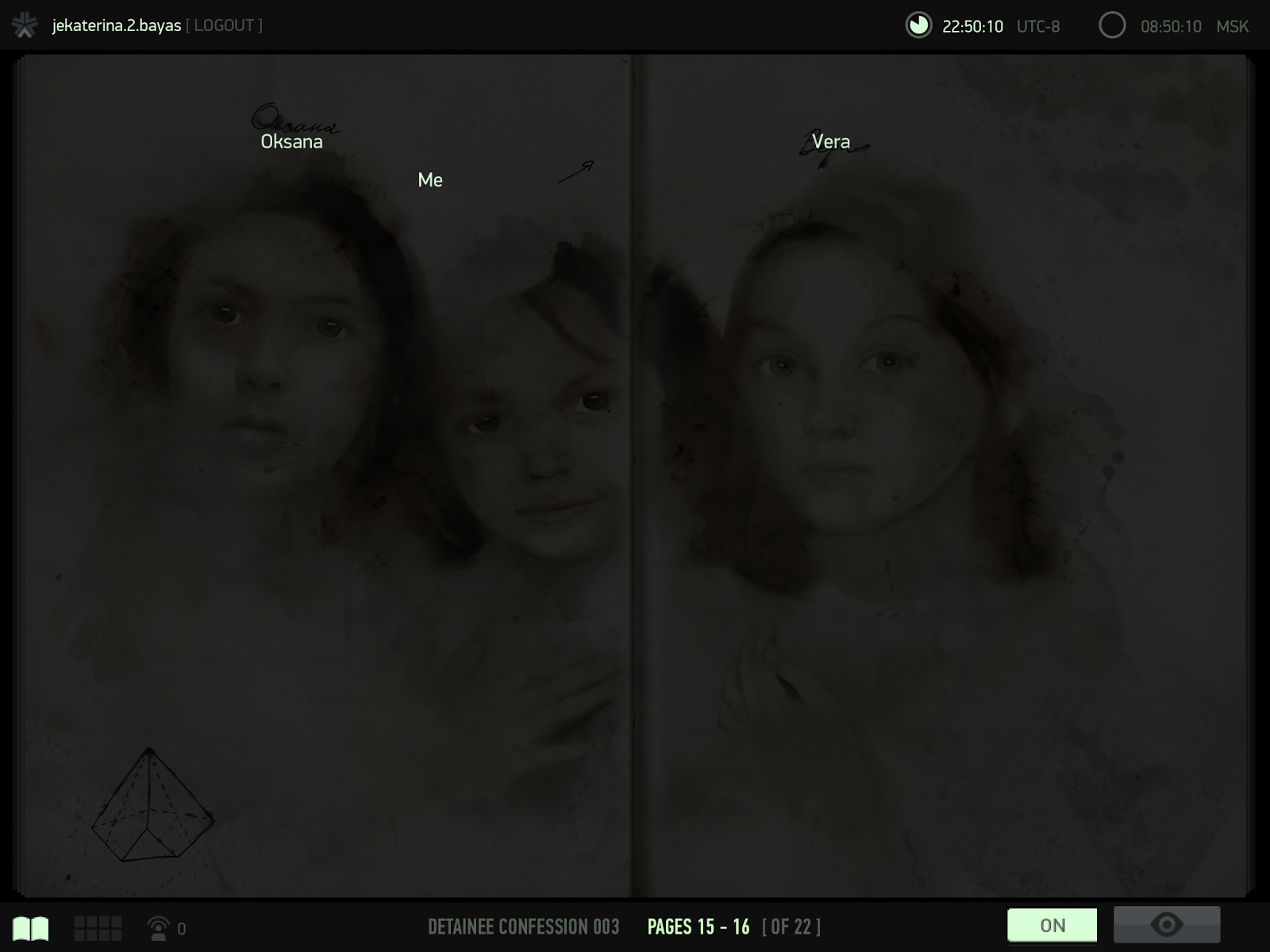
To get odd transmissions from glitch lady once more:
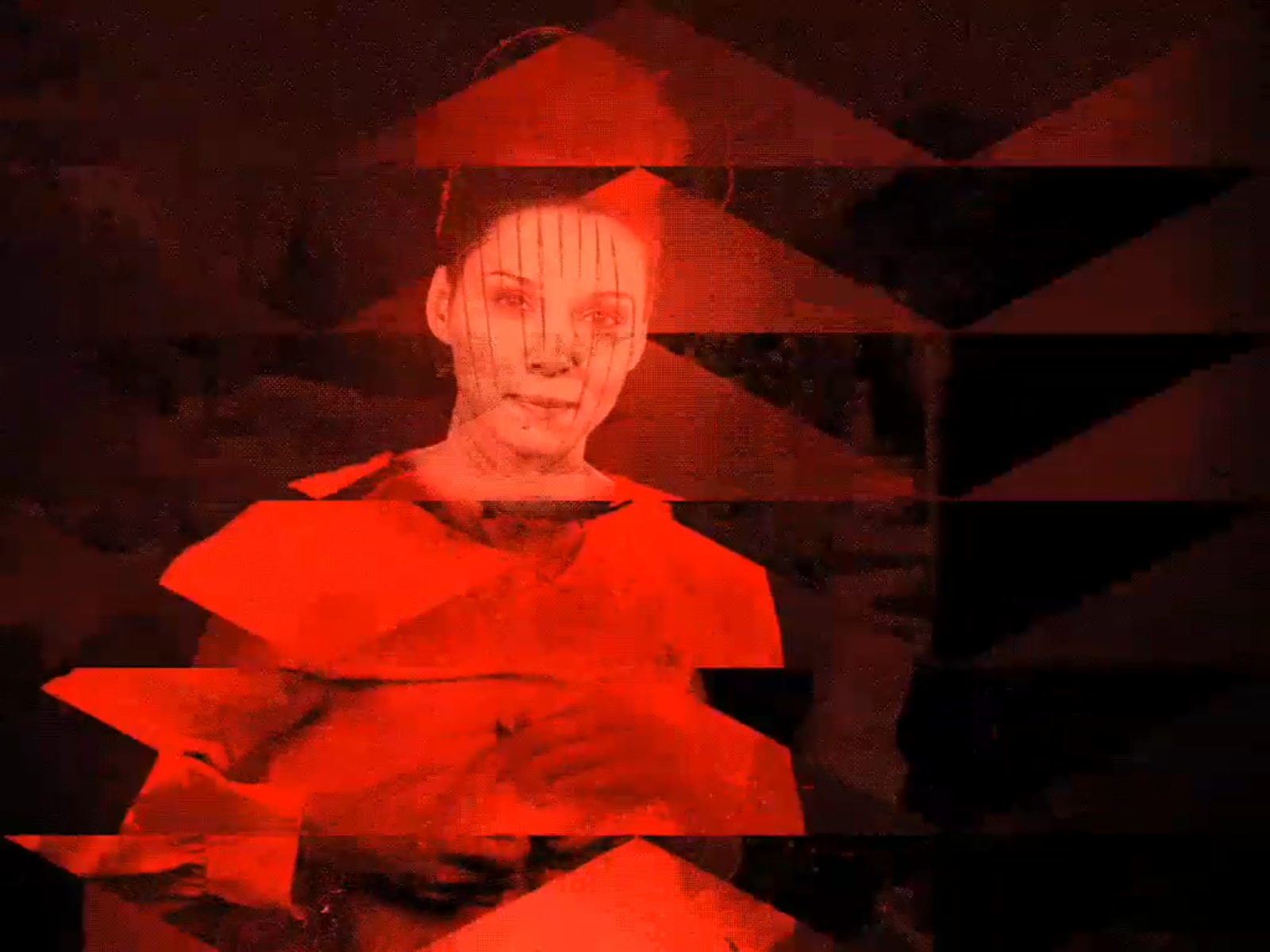
And to hack into other people’s accounts:
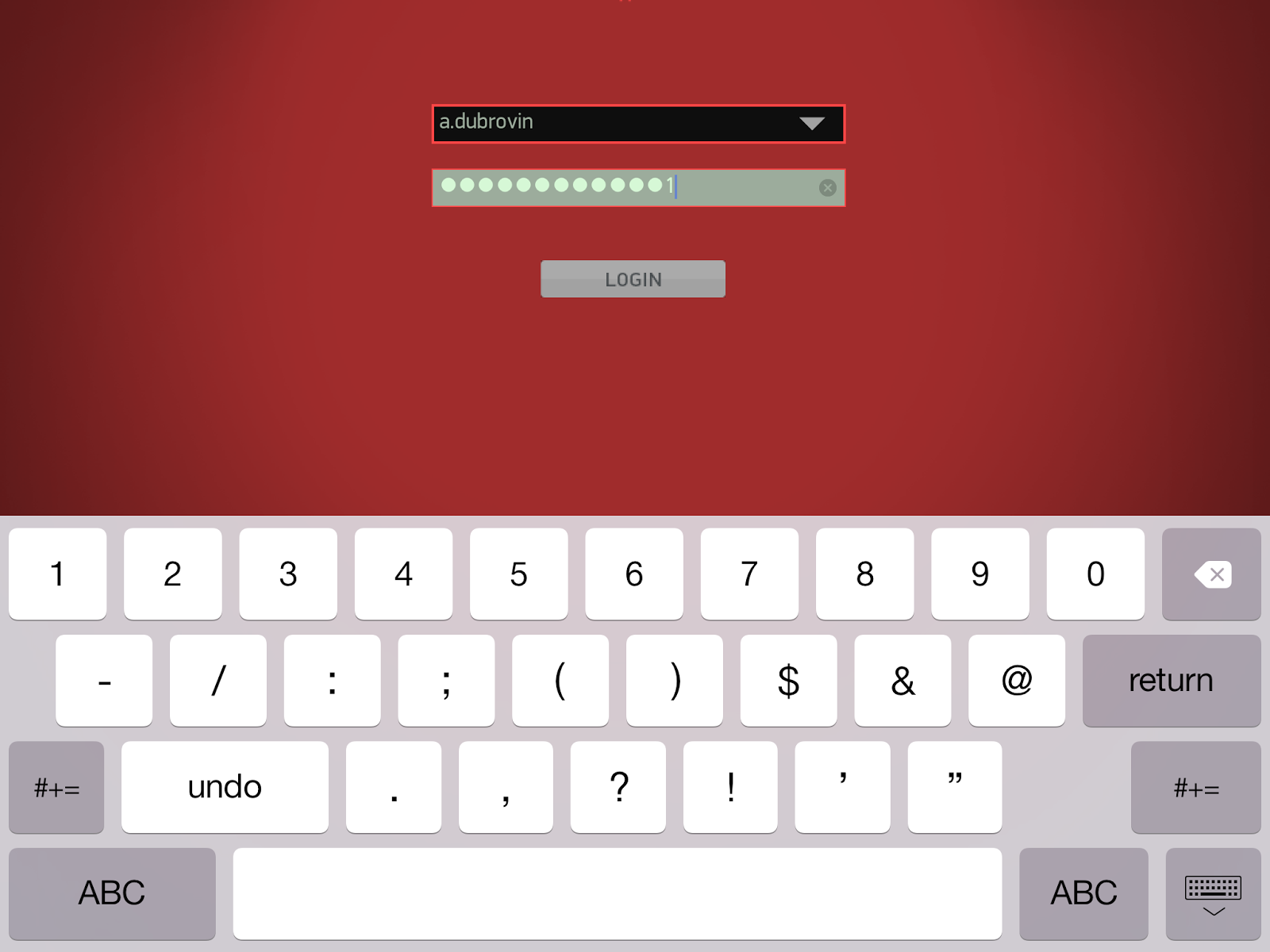
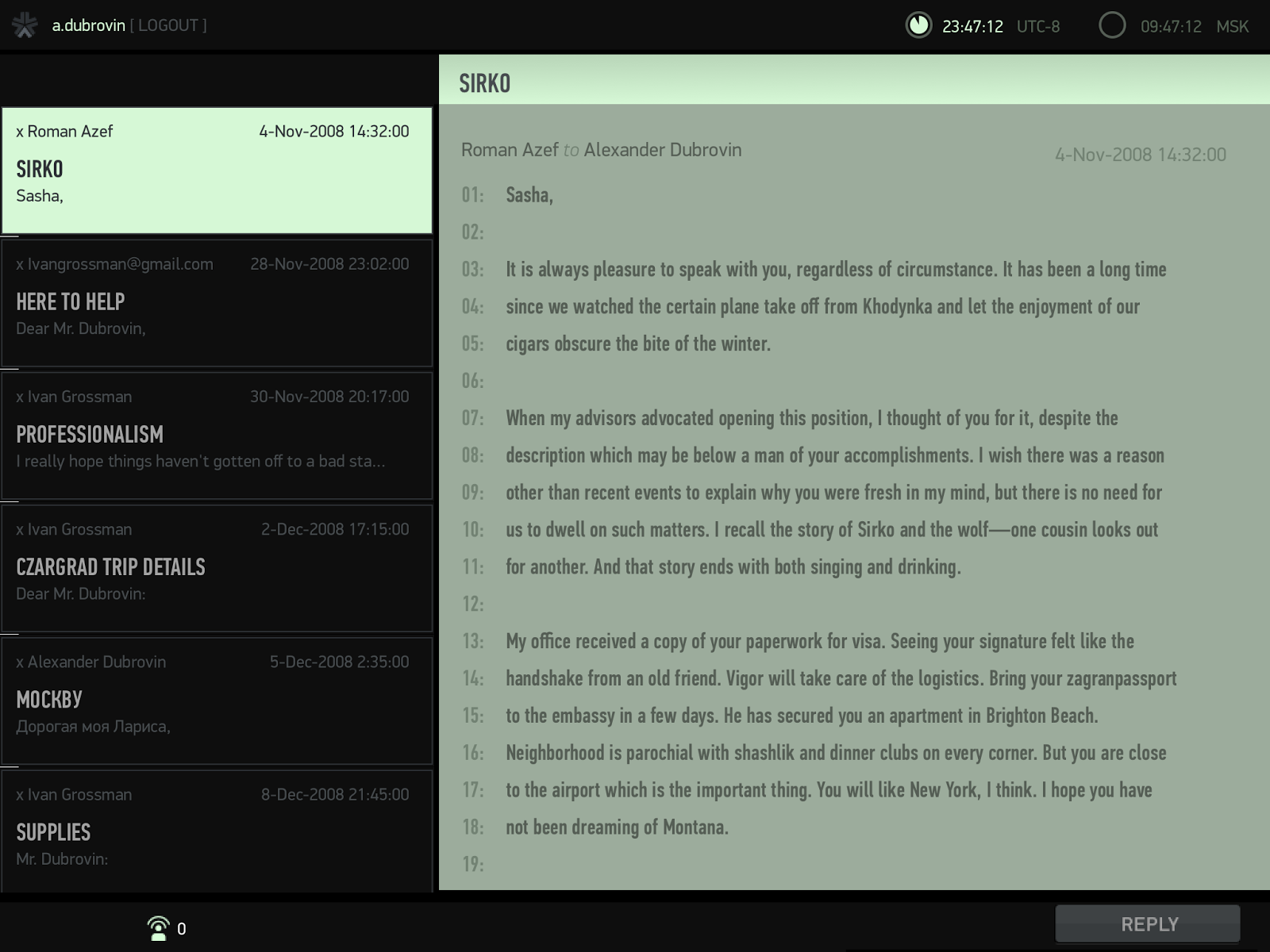
Without spoiling anything, the logs are dizzying, and they often describe horrific or unsettling events. Once I started reading them, it was difficult to stop — I had to know what happened to people. I had to suss out what tales were true — because surely, some of this was true? Maybe?
When I grew tired of reading them, I dove into the dozens of older threads all around the web about people’s fruitless attempts to figure out what was actually going on, and what the purpose of Junko Junsui or ALFA-ARKIV. Nobody seemed to have an answer. It was just labyrinth after labyrinth, username after username making all sorts of connections and so-called breakthroughs on a puzzle I could barely understand. I found out, for example, what that Chrome extension actually did:
But not why anyone would want something like that in the first place. I also read hundreds of forum posts, each one presenting a new rabbit hole of links and possibilities about things mentioned in the game. I was never sure what held a real link to the game, and what was just a manifestation of my own personal internet mania. I clicked every link just the same, in the hopes that one of them could tell me what in the world was going on.
After a dozen hours of obsessing over this game, I finally came across a CNET story with the truth. I don’t know how I missed it to begin with; it was never hidden or anything like that. But I got so caught up in the original player’s obsession with the game, and the threads they were weaving while playing, that I wasn’t able to step back and really look at what I was dealing with. I would feel stupid about this, except my journey gave me a sense of what the people who originally came across the game must have felt.
“Originally, the idea was to create a sort of digital magazine,” Rob Auten, a writer on well-known games like Battlefield Hardline and The Vanishing of Ethan Carter, told CNET back in December 2014. Reading that name shocked me more than anything else about this story — I actually met Auten a couple years ago at the Game Developers conference in San Francisco. We had drinks and awkwardly joked about how I had panned a game he co-wrote, Gears of War Judgment. I had casually shaken hands with the guy who would go on to create one of the most intense “games” I have ever played. It is a wonder that something as mystifying as terror can have such ordinary human origins.
In the CNET article, Auten describes a massive, secretive project helmed by himself and Patrick Marckesano that had been in the works since 2005. Originally, they hadn’t been aiming to make an ARG exactly, nor was anyone expecting it to become such an internet obsession. It just kept growing and growing into this strange art project that fascinated everyone that came across it. Even 4Chan got involved, resulting in some nastiness between players, as well as the creators of the app itself — CNET reports Marckesano got doxxed by players who were intent on finding out what the hell was going on. So the project, in its original iteration at least, was shut down — eventually leading to the new, reworked iPad app that I had been playing. The project ended up being so successful that CNET claims that one of Alfa-Arkiv’s characters, Oksana Kareyeva, got added to an actual real-life terrorist database. The game inadvertently started melting into real life in unexpected ways.
So why do all this? Why spend almost a decade creating something this bonkers; why go through the trouble of keeping it a secret for so long? Auten and Marckesano said they wanted to create something new, something that defied definition. “I don’t know that it is a game exactly, or that it’s successful as a game,” Auten said. “I don’t much care, truth be told. I do know it’s entirely unique.”
In the end, there was no grand conspiracy. There were no terrorist groups, and no shadowy government organisations. There was only a slick game that got out of hand, and players that desperately wanted to believe in something. I know this. I know the truth; I know what actually happened. But I still don’t trust my iPad camera, and I didn’t sleep that well last night.
You can try out ALFA-ARKIV yourself here, provided you have an iPad.
Contact the author at patricia@kotaku.com.
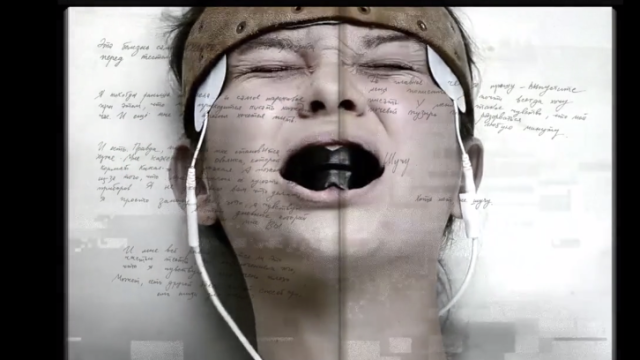
Comments
2 responses to “The Fake ‘Terrorist’ Conspiracy Game That Fooled People For Years”
just wow….
Absolutley nuts! I’d be playing with my thumb on the camera too lol
This is the best fucking article I have read on Kotaku in many many years.
I wish all articles had this depth, interest and effort.
It is massively long, and yet as you yourself describe about your experience, just this article made me want to keep reading till the end.
Fucking Awesome Work!
(I know this will probably get modded for the profanity, but I think it is required to emphasise my appreciation of this article).